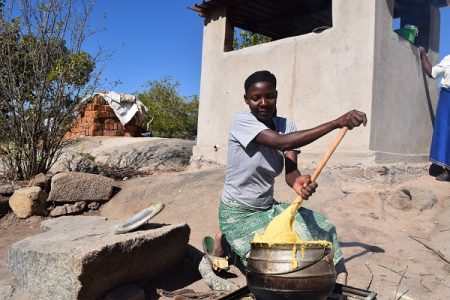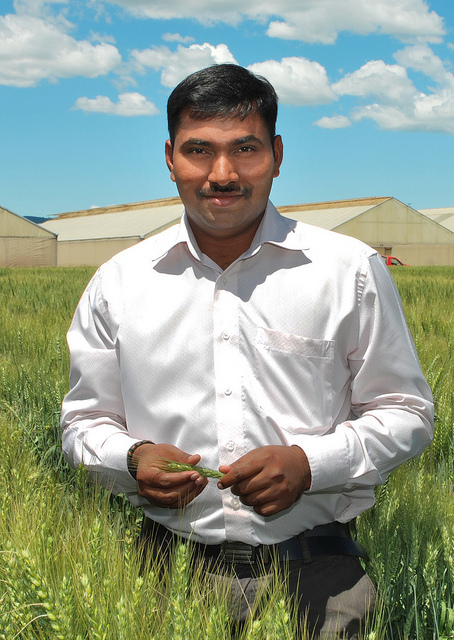Joyce Maru is a capacity development & communications specialist at the International Potato Center

Vitamin A deficiency is considered a major public health problem in Tanzania affecting over 30 percent of the population, mostly children in preschool and women of reproductive age. It can result in morbidity, loss of vision or blindness and even death.
Provitamin A maize (PVA) is a special type of biofortified maize that contains high levels of beta-carotene. Beta-Carotene is an organic, red-orange pigment abundant in plants and fruits and gives PVA maize an orange color. It is converted to vitamin A in the body after consumption to provide additional nutritional benefits.
Biofortification enhances the nutritional value of staple food crops by increasing the density of vitamins and minerals in a crop through either conventional plant breeding, agronomic practices or biotechnology. This can significantly reduce the prevalence of “hidden hunger” due to micronutrient deficiency.
Maize – a staple food in Tanzania – can serve as a cheap and sustainable source of vitamin A, especially for vulnerable populations. Stores of vitamin A in 5 to 7 year old children improved when they ate PVA maize, according to HarvestPlus research.
PVA maize was recently introduced in Tanzania through the Building Nutritious Food Baskets Project (BNFB), a joint effort by the Government of Tanzania, Tanzania Official Seed Certification Institute, the International Maize and Wheat Improvement Center and national seed companies. Two Provitamin A maize varieties – Meru VAH517 and Meru VAH519 – were released for commercial production by Meru Agro Tours and Consultants in September 2016.
To catalyze efforts to increase planting and consumption of PVA maize, different actors along the maize value chain launched a PVA maize platform for Tanzania. The platform will serve as an information and knowledge center on PVA maize in the country by linking different stakeholders to relevant authorities on matters relating to PVA maize, as well as provide capacity development opportunities for members on critical gaps relating to PVA maize knowledge and biofortification in general.
Membership of the platform is expected to become multi-sectoral and multi-disciplinary and include actors such as the ministry of health, school feeding programs and academic institutions. The platform will be led by national partners.
The International Potato Center is collaborating with a consortium of CGIAR research centers, the governments of Nigeria and Tanzania and national partners on BNFB, which is addressing hidden hunger by catalyzing sustainable investments for the production and utilization of biofortified crops. The project mainly targets rural populations, especially young children under the age of five and women of reproductive age, in Nigeria and Tanzania.

 Nutrition, health and food security
Nutrition, health and food security 
